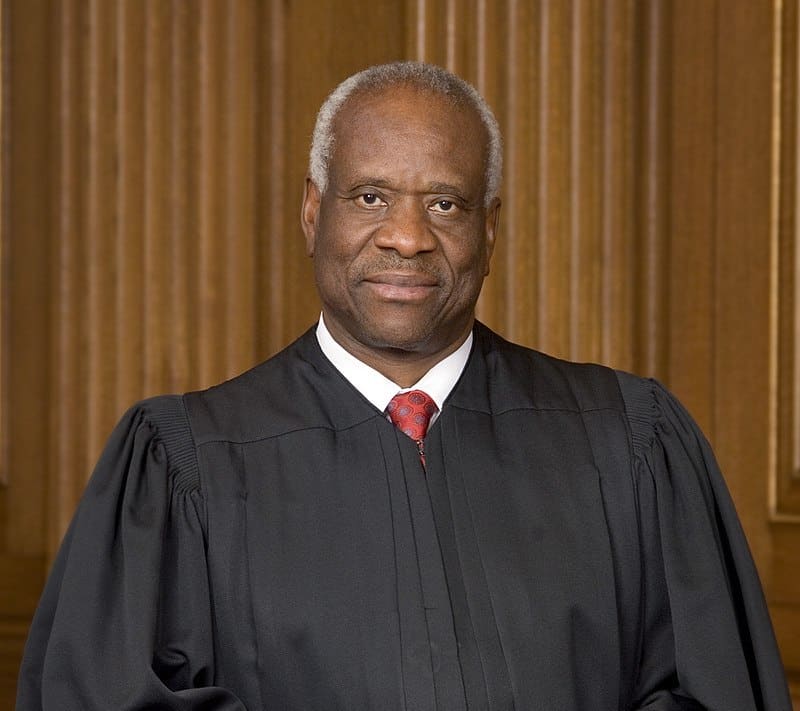Supreme Court Justice Clarence Thomas failed to disclose a $100,000-plus real estate transaction involving GOP megadonor Harlan Crow.
The 2014 deal involving three properties purchased by Crow from Thomas was revealed as part of ongoing investigative reporting by the non-profit outlet ProPublica.
“The transaction marks the first known instance of money flowing from the Republican megadonor to the Supreme Court justice,” ProPublica wrote in an article published Thursday. “The Crow company bought the properties for $133,363 from three co-owners—Thomas, his mother and the family of Thomas’ late brother, according to a state tax document and a deed dated Oct. 15, 2014, filed at the Chatham County courthouse.”
ProPublica previously revealed that Thomas and his wife Ginni, a GOP political activist, were gifted with hundreds of thousands of dollars worth of annual vacations and trips by Texas billionaire Crow for decades. It’s estimated that at least one trip—to Indonesia in 2019—would have cost the Thomases more than $500,000 had they chartered the reported private plane and yacht themselves.
According to ProPublica, the frequency of the gifts have “no known precedent in the modern history of the U.S. Supreme Court.”
On Friday, Thomas responded to the ProPublica report by saying he “was advised” that he did not have to disclose the series of trips paid for by Crow.
On that same day, two Congressional Democrats—Sen. Sheldon Whitehouse (D-RI) and Rep. Hank Johnson (D-GA)—led a group of nearly two dozen Democratic lawmakers in calling for an ethics investigation into Thomas’ alleged misconduct.
And this Tuesday, a group of 11 Democratic members of the Senate Judiciary Committee urged Supreme Court Chief Justice John Roberts to investigate Thomas’ undisclosed acceptance of luxury trips—saying that if the Supreme Court doesn’t act on the issue, the committee will consider voting on legislation to do so itself.
Federal officials, including Supreme Court justices, are required to disclose the details of most real estate transactions with a value of more than $1,000. Thomas would not have been required to report the purchase if the property was his or his spouse’s primary personal residence, but this stipulation does not apply to the property involved in the reported transaction with Crow, which Thomas did not report.
The Supreme Court is virtually the only court in the U.S. that does not adhere to a formal code of ethics.
Public opinion of the Court sank to historic lows in the past year, with just 25% of those Americans surveyed by Gallup saying they had confidence in the Supreme Court—down from 36% a year ago and down five percentage points from the previous low recorded in 2014.


